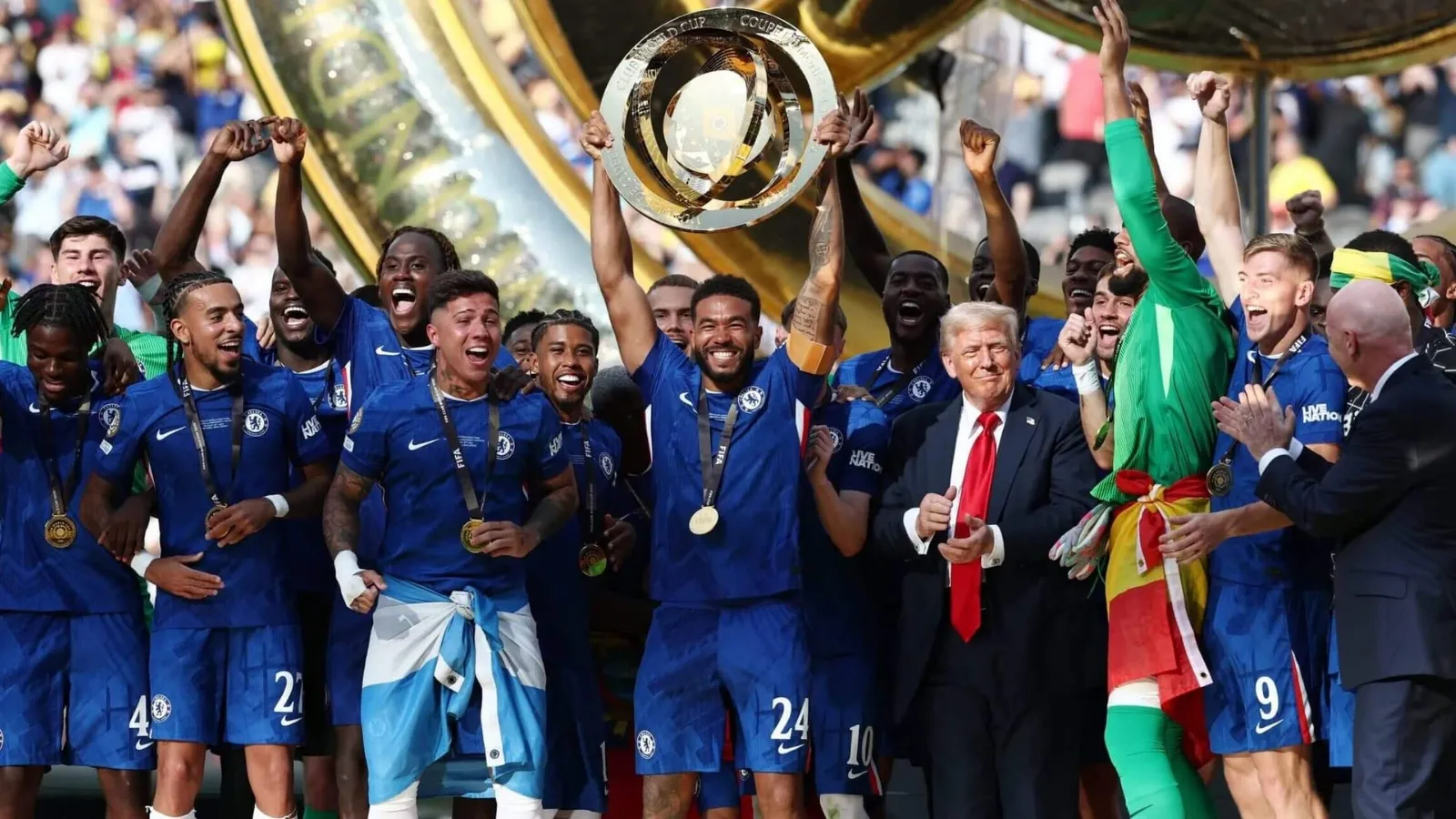A New Era for Global Football: Our Report on the FIFA Club World Cup 2025
The summer of 2025 will be remembered as the moment global club football changed for ever. The FIFA Club World Cup, once a modest annual affair, was reborn in the United States as a sprawling 32-team tournament. It was ambitious, controversial, and, by the end, utterly compelling.
Quick Summary
This wasn't just another competition. It was a statement of intent from FIFA, a financial game-changer for many clubs, and a gruelling test of player welfare. From shocking upsets to off-field drama, here is our complete breakdown of a tournament that has redrawn the map of club football.
The Final That Defied All Odds: Chelsea 3-0 PSG
The tournament’s climax at a packed MetLife Stadium was a story no one saw coming. Paris Saint-Germain, the reigning European champions, arrived in the final having dismantled opponents, including a ruthless 4-0 win over Real Madrid. Chelsea, on the other hand, had stumbled, even suffering a 3-1 defeat to Flamengo in the group stage.
What unfolded was a tactical masterclass. Chelsea delivered a stunning 3-0 upset, with Cole Palmer the architect of the victory. He scored two clinical goals in eight first-half minutes before setting up João Pedro for the third just before the break. It was a performance of composure and lethal efficiency that left PSG, and the watching world, stunned. For a team that many had written off, it was a remarkable coronation.
Defining Moments & Shocking Upsets
Manchester City’s Early Exit
The biggest shock came in the Round of 16. Defending champions Manchester City were knocked out 4-3 by Saudi Arabia's Al-Hilal in a dramatic extra-time thriller, proving European dominance was no longer guaranteed.
A Record-Breaking Rout
In a display of overwhelming power, Bayern Munich defeated Auckland City 10-0, the largest margin of victory in the tournament's history, sparking debate about the competitive balance of the new format.
South American Brilliance
Brazilian clubs made their mark. Botafogo’s 1-0 win over PSG was a highlight, while Flamengo’s victory over Chelsea almost ended the champions' campaign before it had truly begun.

Off-Field Drama: Weather, Welfare, and Attendance
The tournament wasn't without its significant challenges, raising important questions for future editions. Extreme weather caused lengthy delays, while the already fierce debate over fixture congestion and player welfare intensified significantly.
The Billion-Dollar Money Game
The tournament's staggering $1 billion prize pool has fundamentally altered the financial dynamics of club football. Chelsea's victory earned them approximately $114.6 million, but the real story was the impact on clubs from outside Europe. For clubs in South America, Africa, and Asia, the participation fees alone were transformative. This financial redistribution could help to level the playing field, allowing clubs to invest in talent and infrastructure to better compete on the global stage.

A Tournament Transformed: The Verdict
So, was the first-ever 32-team FIFA Club World Cup a success? Despite the logistical hurdles and legitimate concerns over player welfare, the answer is a resounding yes. It succeeded in creating a genuine global stage where clubs from different continents could test themselves against one another. The unpredictability, headlined by Chelsea's underdog victory, gave the tournament a competitive integrity that many had questioned beforehand.
The financial impact is undeniable and will reshape the ambitions of clubs far beyond Europe's traditional elite. As we look ahead to potential expansion and the next edition in 2029, it’s clear that a new pillar has been established in the global football calendar. It’s one that promises more drama, more opportunity, and a truly worldwide competition for the beautiful game.
FIFA Club World Cup 2025: Frequently Asked Questions (FAQs)
General Tournament Information
The FIFA Club World Cup 2025 is the first edition of the expanded 32-team global club football tournament. Held in the United States from 15 June to 13 July 2025, it brought together top clubs from all six FIFA confederations in a month-long competition.
The entire tournament took place across 11 cities in the United States, including New York, Los Angeles, Miami, Dallas, and Orlando.
A total of 32 clubs participated, representing UEFA, CONMEBOL, CONCACAF, AFC, CAF, OFC, and the host nation's league.
Tournament Format & Structure
The teams were divided into eight groups of four. The top two from each group advanced to the knockout stages, which included the Round of 16, quarter-finals, semi-finals, and the final.
Qualification was based on winning continental titles between 2021 and 2024 or accumulating points in club rankings as determined by each confederation. One club from the USA qualified as hosts.
Results & Highlights
Chelsea won the tournament, defeating Paris Saint-Germain (PSG) 3-0 in the final at MetLife Stadium, New Jersey.
Cole Palmer (Chelsea): Player of the Tournament (Golden Ball)
Robert Sánchez (Chelsea): Best Goalkeeper (Golden Glove)
Désiré Doué (PSG): Best Young Player
Gonzalo García (Real Madrid): Top Scorer (Golden Boot) with 4 goals.
Yes. Al Hilal (Saudi Arabia) eliminated Manchester City in the Round of 16, and Flamengo defeated Chelsea in the group stage.
Attendance, Broadcasting, and Popularity
Average attendance for matches was about 34,773, with the final drawing over 81,000 fans. Some group matches saw less than half the seats filled, while knockout rounds had higher attendance.
Matches were broadcast globally on DAZN and available free-to-air in the UK on Channel 5. TNT Sports and other regional broadcasters also carried the matches.
Financials and Prize Money
The total prize pool reached $1 billion. Chelsea earned about $114.6 million for winning, with significant earnings for all participating clubs, especially transformative for clubs outside Europe.
Weather, Player Welfare, and Controversies
Several matches were delayed due to thunderstorms and extreme heat, drawing criticism regarding venue selection and player welfare.
The proximity of the tournament to domestic seasons led to concerns over player fatigue. FIFPRO and some managers called for changes to better protect player health.
Future and Legacy
FIFA has announced plans to continue the 32-team format every four years and is considering expanding to 48 teams for future editions.
The event generated significant economic activity, massive audiences, and new global football storylines, cementing its place as a major club competition.





